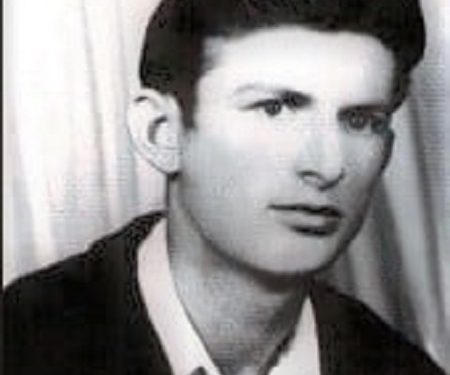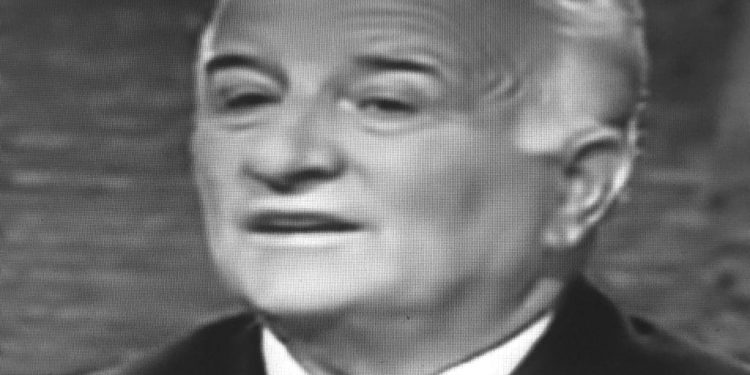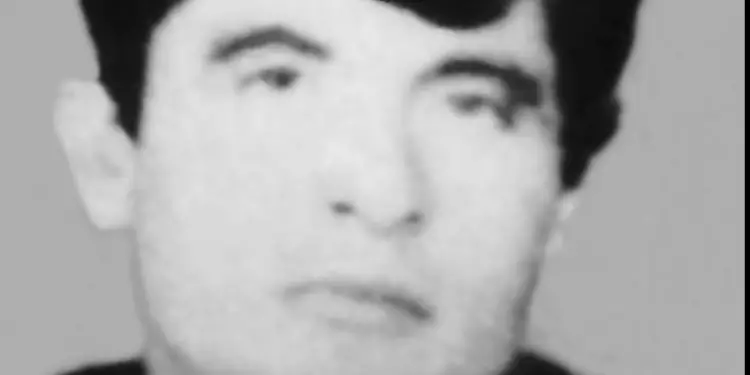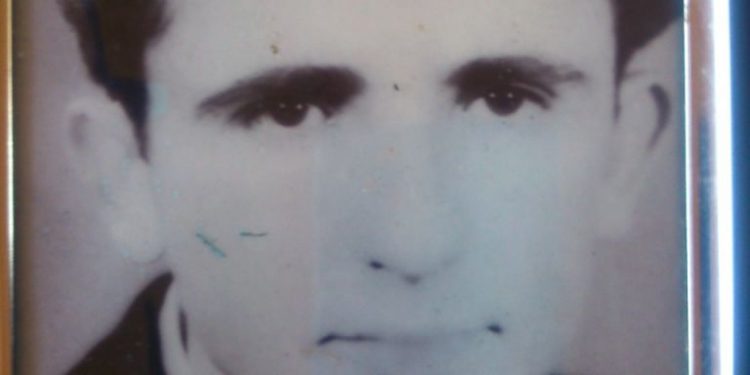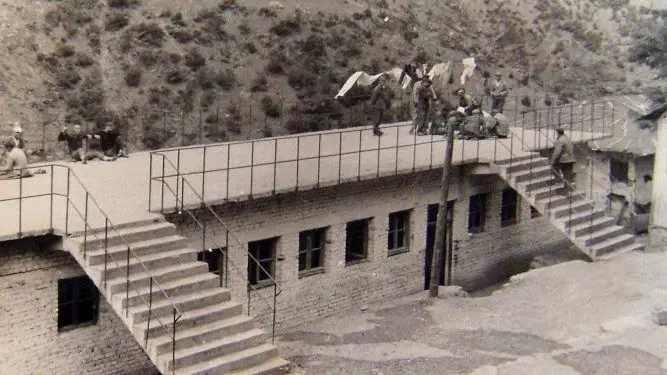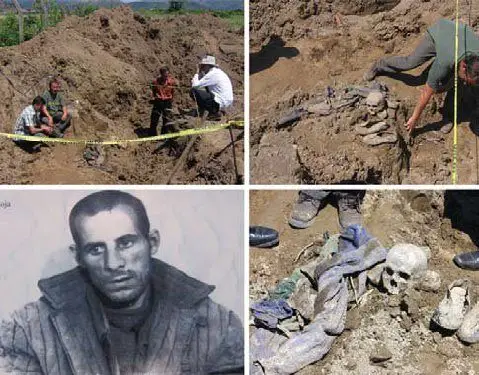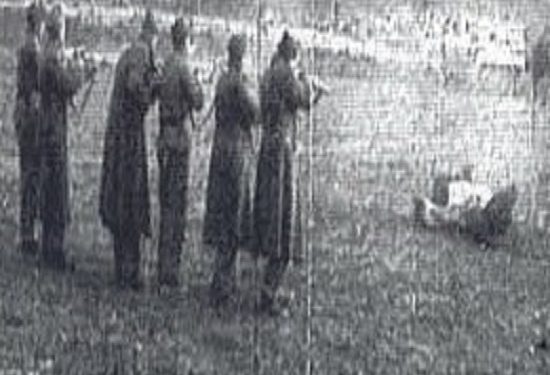Dashnor Kaloçi
Second part
Memorie.al publishes the chilling testimonies of 79-year-old Agim Bejko, originally from Starova of Pogradec and living in Paris, who tells the whole story of the Spaç Revolt, which took place on May 21, 22 and 23, 1973, where about The 1000 prisoners of that camp rose in revolt against the prison command and the communist regime of that time, chanting political slogans such as: “Down with the dictatorship”, “We are not slaves”, “Here is death, here is freedom” “You are murderers, you have painted your hands with our blood”, “Long live free Europe”, “Down with the communists”, “We will burn you like Stalin”, “The people are with us and are against you”, etc. All the details of how his brother, 27-year-old Dervish Bejko, was executed along with four friends; Hajri Pashaj, Pal Zefi and Skender Daja and the long ordeal of over 25 years of Agim Bejko in some districts of the country, in hills, mountains, streams and valleys, to find their bones …?!
“At the head of the revolt were these four; Dervish Bejko, Hajri Pashai, Pal Zefi and Skender Daja, who were the main initiators of that revolt, but there were also other well-known names who later became legends of the political prisons of the communist regime, such as; Bedri Çoku, Gjet Kadeli, Demir Pojani, Dashnor Kazazi, Syrja Lamçe, Paulin Vata, Jorgo Papa, Luan Koka, Sami Dangëllia, Luan Burimi, and Hodo Sokoli. There have been many others, that I do not remember now and I do not want to make a classification, as that thing is already well known. So in the first moments of the revolt, my brother, Dervishi, tore the red piece of the bed and took Mersin Vlash, to paint the eagle. After he wanted to make the national flag, but without the red communist star. After Mersin painted the starless eagle, Dervishi took the flag and went to the third floor of the prison. This flag lived for three days and three nights, from May 21 to 23 “.
This is what 79-year-old Agim Bejko, originally from Starova in Pogradec and living in Paris for years, says for Memorie.al, which proves one of the most special stories of the camps and prisons of the communist regime of Enver Hoxha, that of The ‘Spaç Revolt’ of 1973, where one of the four executed was his brother, Dervish Bejko, then only 27 years old. Regarding the events of the Spaç revolt, as well as the many vicissitudes and the long ordeal of almost three decades of Agim Bejko in search of the remains of his dance, Dervish, and his three accomplices: Pal Zefi, Hajri Pashaj and Skënder Daja, etc., events never published before, we will get to know through this interview, starting with the Bejko family, known during the communist regime of Enver Hoxha, as one of the “most reactionary families” of Starova of Pogradec .
Continued from the previous issue
Mr. Agim, what happened next, how did the events unfold with the revolt?
The flag with the starless eagle did not last long, as the Special Forces that went to reinforce from Tirana, were equipped with sophisticated weapons and used an unprecedented terror and violence in the Spaç revolt. At the time when the flag was hoisted on the buildings of the Spaç camp without the red communist star, the prison command, where the Deputy Minister of Interior, Feçor Shehu, was present, together with the then Minister, Kadri Hazbiu, was asked to a delegation of prisoners was sent to speak and to lower the flag. They did not go because they knew the communists were unfaithful. Then after that unprecedented violence was used. The greatest truth is this; that the prisoners, even though they knew that they would go to the guillotine, that it was not a small thing to say at that time “down to communism”, “freedom, democracy”, etc., did not withdraw at all. It was impossible to escape; you would definitely go to the guillotine. My brother, Dervish Bejko, along with three other friends, wanted an honorable death rather than a long suffering. Meanwhile, two helicopters were brought over the camp of Spaç, where in one of them (this I am telling you I have witnessed from witnesses who have been there), there were 20 armed champions, with shovel tails. And so, with the intervention of these Special Forces, this revolt was of course defeated, as two sides met in unequal conditions …!?
What happened to your brother, Dervish?
This happened to Dervishi, who, after being defeated by the sampists who had come from Tirana, breaking his arm and shoulder, half-heartedly took him to a stall and isolated him together with three other comrades; Skënder Daja, Pal Zefi and Hajri Pashaj.
And then what happened to them?
A special trial was held there in Spaç prison and all four were sentenced to death, while the others, a large group of over 30 people, were re-sentenced to very severe sentences. Before being taken to be shot, Dervish was passed in front of 800 prisoners in the camp yard, and he told them: “Trust little Leonard and his sisters do not take me by the feet.” The special trial that took place inside the camp had the presiding judge, Ilmi Telegraf, and his assistants Ymer Aliko and Qemal Shehu. The prosecutor was Zaim Myftari. These four were convicted without revocation of the sentence, ie they had no right to appeal. All four of them were all young boys, not yet in their 30s. Ironically, Hajri Pashai was convicted in vain because he was another to be convicted in his place.
How did this happen?
Yes, when Feçor Shehu entered the camp (after the special forces took control of the situation), since he knew Hajri Pasha’s father, he cursed and offended him, telling Hajri more or less that he was following his father’s hostile path. But Hajri, as brave as he was, returned to Feçor, saying: “At one time, you wiped my father’s shoes”. Feçori got angry and said to his subordinates: “Take one, put this (Hajri) inside.” So he put him in vain in the quartet to be shot.
When did you as a family find out what had happened in Spaç and the misfortune of Dervish?
We learned it after a month of revolt, as we in our family. We still did not know what had happened in Spaç. A month later, the then police chief of Pogradec comes to us and provokes in a meeting in Starovo in the reading room of that time. There they drag our father, Enver, along with a sister, as I worked on a farm and was not there. My father and sister, Suzana, the chief of police, together with the party secretary, gave him the “good news” that was meant for us.
How did they get the news of Dervish’s shooting?
They told him: “The trial panel in Spaç sentenced Dervish Enver Bacon to death and executed him”. After saying these words, the police chief added: “We have a strong party”, and asked the father to stand up and say “long live the party”.
How did your father react after that …?!
The father refused but said only these words: “My son is innocent”. Meanwhile, the sisters took him and left the meeting and went home, where they found his mother and sisters in a state of anxiety.
Were you at home in those moments?
Since I worked on a farm, my father thought that the sooner I heard from others, the better he would tell me. And he comes and tells me himself. Pointing to me, he tells me: “I do not understand, maybe he wanted to escape …”, to make the news easier for me. But it was true, even though a month late, the news was true. They forced us not to dress our sisters and mothers in black, telling us that “he is the enemy of the people.” So we cried with ourselves, and after three days we were forced to go to work, not in black, not sad, because “the enemy does not cry.” A year and a half later, the father, on the day he turned 60, could not bear the great pain and died.
Did anyone come to the father’s funeral?
The father at that time was buried only by our relatives. We were not allowed by the Security people to give us the village and the cemeteries to cover the father. We buried it ourselves, there were 20 of us, our grooms and relatives who were there, because it was an unprecedented psychological terror and no one dared to approach us, let alone bury us …?! To be honest, because we were the only family in 1973 when our brother was executed, we looked like we had leprosy, no one approached us.
Did you learn more about what happened to Dervish and where he was executed?
At that time it was not even a question of learning anything more and we only learned the truth in 1993 – ‘94, because before, it was understood that you could not ask for documents and learn the truth. I went myself and searched for a month to find the bones. I went to Spaç and met people, I also went to Rrëshen. The truth is that the deputy of Pogradec, Jemin Gjana, helped me by introducing himself to the former minister of that time, Agron Musarai. And with their help and that of the Attorney General of that time, he entered the state archive (Archive of the Ministry of Internal Affairs) to find Dervish’s file.
Could you find documents there?
I found the letters of investigation, conviction and re-conviction in Spaç, that he was re-convicted and we were sentenced to be shot. From the research I did, Dervishi and three other friends who were sentenced to death were brought to Rrëshen and there, the district prosecutor of that time (whom I met personally with my two cousins) told me “We shot them here at the Fanit Bridge.” He also told us that I made the minutes with mistakes, and that was true, that I had the minutes with me that day and I knew he was not lying. The prosecutor also told me that Hajriu, together with Pal Zefi, had stayed like men, while the others had been shot immediately and had not suffered.
After the prosecutor told you that they had been shot there at the Fan Bridge, did you start searching for their bones?
Regarding the place where they were shot, according to some testimonies or more precisely say legends, they are in two versions; one on the Fani bridge and the second behind the Rrëshen cinema. I am not correct about this, because in the archives are these data; that the dead bodies were handed over to Qemal Shehu, who were thrown in the diagaç, and with the same diagaç, they went to Tirana to the Ministry of Order. And with another order, the four corpses were taken to the morgue in Tirana. And since it was an inappropriate time (because I went to the morgue myself and found the note “corpses with index 7, coming from Spaci”), since the morgue is overcrowded, we cannot keep them ‘. So they send them back to the Interior Ministry. By order of the deputy minister of that time, they are made available to the Orthopedic Forensic Forensics, and here begins our greatest tragedy, that we cannot find the bones …?!
What did you do next?
In 1993 – ’94, together with Haki Slatina, “Mandela” of Pogradec at that time, (since I was the secretary of the Association of Political Prisoners and Persecuted for the Pogradec branch, he was chairman), we started the search, after he knew the fourth. Hakiu had slept with “Bixulli” for a year (Bixulli was Skender Daja), this nickname was given to him by his friends in prison, because he was quite agile). Dervish knew that he was from Pogradec. So we came to Tirana in Forensics, by order of the General Prosecutor and the Minister of Interior. At that time there was Sazan Gabriani, the head of the Legal Forensic Clinic.
What did he say …?!
“He told us that these four bodies had been put in a well 15 meters deep, putting them in four different beds covered with sheets.”
What was this well …!?
The well was with naphthalene and the bodies were black. They kept them there for teaching by Medical students. I remembered my brother, Dervish, that when he was a soldier, I saw that he had made an anchor in his left arm. I always looked at the arm, to see that anchor that at that time DNA did not exist. I do not know, I do not know what to say that I am not an expert in these matters, and I cannot talk about naphthalene, what effect it has on the stay of troops there for 10 to 20 years. I did not know if naphthalene could dissolve the tattoo…?
The bodies that were exhumed, how many years did they stay there and were they what you were looking for?
I cannot say exactly that; were these or others that those we saw were with a bullet in the forehead and in the body, they had been there for years. Neither my brother nor any of these four (perhaps my emotions weakened me, but Haki Slatina knew the fourth), do not look like their bodies. Even today we have not found the remains of the brother.
What moral values have been given to them?
The Speaker of the Parliament at that time, Mr. Pjetër Arbnori, came himself and brought the decoration of Dervish, because all four of them were decorated with the medal “Martyrs of Democracy”, mainly for the Revolt of Spaç.
Did you talk as a family with Mr. Arbnor, to ask for help in finding the bones of your brother, Dervish?
My mother talked to Mr. Peter and her words have stuck in my mind to this day. She said to Mr. Arbnori: “Thank you for coming and doing me the greatest honor, but I love my son’s bones.”
Was there any hope…?
With all the kindness of Mr. Arbnor, even to this day those bones have not been found as long as she and Peter were alive. I have not found those bones until today, although when I appeared on a television or newspaper, I called on all Albanians, inside and outside the country, that if they know anything about the whereabouts of my brother, to the other three martyrs, to signal me, because I will have him as a friend for the rest of my life, as long as I live, that my mother and father left without knowing the truth. I have survived, and it will free me from this nightmare of 30 or so years, because it follows me like a bell. I take this opportunity to repeat this now through your media; I will be grateful to whoever this, even anonymous, does not matter. I want to find the bones, let the one who killed them (of the firing squad) tell me that he has done a task ordered by someone. This is my last call.
After all these searches, have you continued to search, or … have you lost hope …?!
Without me I have always kept asking. A few years ago, with the help of the Deputy Minister of Interior of the Democratic Party government, who was officially assigned to help search for and find the remains of former people shot by the communist dictatorship, after some signals, we did some excavations somewhere near the village of Berzhitë , somewhere on the side of the national road, (Tirana – Elbasan) but unfortunately without result …?! Anyway I will try and continue to search for my brother’s bones, until I have a living soul…! Memorie.al




